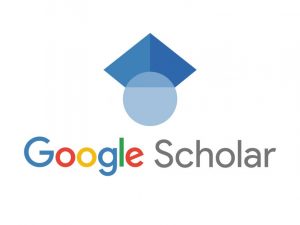Dr. Alexandre Abrahão Cury

CNPq research productivity scholarship – Level 1D
e-mail: alexandre.cury@ufjf.br
 |
Bachelor Degree in Civil Engineering at the Federal University of Juiz de Fora (2006), Master Degree in Computational Modeling at the Federal University of Juiz de Fora (2008) and PhD in Civil Engineering at the Paris-Est University (École Nationale des Ponts et Chaussées) in 2010. I work mainly on the following topics: structural integrity monitoring, vibration analysis, damage detection, modal identification, advanced statistical analysis and structural reliability. I am an associate professor at the Department of Applied and Computational Mechanics. I was the head of the Graduate Program in Civil Engineering at the Federal University of Juiz de Fora (2016-2019). Between 2014 and 2016, I was a member of CA-TEC (Architecture and Engineering Advisory Chamber) of FAPEMIG (Minas Gerais State Research Support Foundation). Member of the editorial board of Frontiers: Build Engineering and Structural Sensing magazine. Received an honorable mention in the 2017 CAPES Thesis Award. CNPq Productivity Researcher, level 1D.
Knowledge Area: Structures and Materials
Lines of Research: Structural Mechanics
Modules:
- Structural reliability
- Elasticity
- Data Science applied to Civil Engineering
Research Projects
- 2023 – Current. Identification of structural damage using hybrid learning techniques
- Funding: National Council for Scientific and Technological Development (CNPq)
- 2023 – Current. Development of an innovative methodology for Structural Integrity Monitoring based on Artificial Intelligence and Internet of Things
- Funding: Minas Gerais State Agency for Research and Development (FAPEMIG)
- 2022 – Current. – Development of SHM strategies for railways
- Funding: National Council for Scientific and Technological Development (CNPq)
Recent Outcomes
- ALVES, VICTOR ; CURY, ALEXANDRE . An automated vibration-based structural damage localization strategy using filter-type feature selection. MECHANICAL SYSTEMS AND SIGNAL PROCESSING, v. 190, p. 110145, 2023. http://dx.doi.org/10.1016/j.ymssp.2023.110145
- BORATTO, TALES H.A. ; CURY, ALEXANDRE A. ; GOLIATT, LEONARDO . Machine learning-based classification of bronze alloy cymbals from microphone captured data enhanced with feature selection approaches. EXPERT SYSTEMS WITH APPLICATIONS, v. 215, p. 119378, 2023. http://dx.doi.org/10.1016/j.eswa.2022.119378
- FINOTTI, RAFAELLE PIAZZAROLI ; BARBOSA, FLÁVIO DE SOUZA ; CURY, ALEXANDRE ABRAHÃO ; PIMENTEL, ROBERTO LEAL . Novelty Detection Using Sparse Auto-Encoders to Characterize Structural Vibration Responses. ARABIAN JOURNAL FOR SCIENCE AND ENGINEERING, v. 1, p. 1, 2022. http://dx.doi.org/10.1007/s13369-022-06732-6
- FINOTTI, R. ; GENTILE, C. ; BARBOSA, F. S. ; CURY, A.A. . Structural novelty detection based on sparse autoencoders and control charts. STRUCTURAL ENGINEERING AND MECHANICS, v. 81, p. 647-664, 2022.
- PENIDO, RÚBEN EL-KATIB ; DA PAIXÃO, RAFAEL CHRISTIAN FONSECA ; COSTA, LAÍS CRISTINA BARBOSA ; PEIXOTO, RICARDO ANDRÉ FIOROTTI ; CURY, ALEXANDRE ABRAHÃO ; MENDES, JÚLIA CASTRO . Predicting the compressive strength of steelmaking slag concrete with machine learning – Considerations on developing a mix design tool. CONSTRUCTION AND BUILDING MATERIALS, v. 341, p. 127896, 2022. http://dx.doi.org/10.1016/j.conbuildmat.2022.127896
Current Supervisions
MSc
- Matheus Júnior Silveira Dalcin. Application of Convolutional Autoencoders for Identification of Damage in Structures. Co-advisor
- Ricardo Vidal Teixeira. Neural Networks Applied to SHM. Co-advisor
- Luiz Tadeu Dias Junior. Application of Variational Autoencoders for Identification of Damage in Structures. Advisor
Finished Supervisions
MSc
- Clayton Felicio da Silva. A comparative analysis of the performance of Kernel Smoother and Monte Carlo methods applied to structural reliability problems. 2022
- Daniel de Almeida Cardoso Soares. ReTiA-SHM – A system for automatic real-time structural integrity monitoring; 2022.
- Tales Humberto de Aquino Boratto. Machine Learning for Automatic Classification of Drum Cymbals according to the Proportion of Tin Present in their Bronze Alloys; 2022.
PhD
- Rafaelle Piazzaroli Finotti. Artificial Intelligence Applied to Monitoring Structures: Detection of Mechanical-Structural Changes Based on the Use of Sparse Autocoding Neural Networks for the Characterization of Dynamic Responses. 2022
- Rharã de Almeida Cardoso. Techniques for automatic damage detection in structural integrity monitoring. 2018
- Vinícius Nicchio Alves. Abnormality techniques applied to the identification of structural damage. 2016
